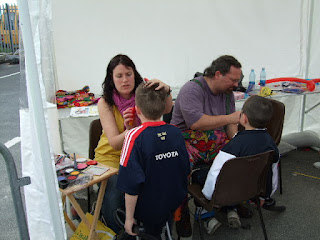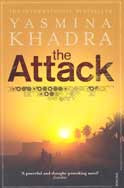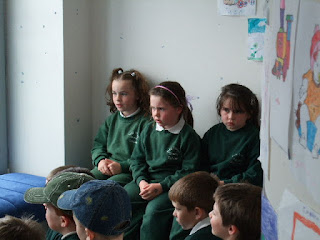De Niro's Game by Rawi Hage has scooped the world’s richest literary prize by being awarded the 13th annual International IMPAC Dublin Literary Award on Friday 12th June. Rawi Hage was born in Beirut and lived through nine years of the Lebanese civil war before emigrating to New York. In 1992, he emigrated to Montreal, Canada, where he has lived ever since. He is a writer, a visual artist, and a curator.
De Niro’s Game plunges readers into the timely story of two young men caught in Lebanon’s civil war. Bassam and George, best friends in childhood, have grown to adulthood in war-torn Beirut. Now they must choose their futures: to stay in the city and consolidate power through crime, or to go into exile abroad, alienated from the only existence they have known. Told in a distinctive, captivating voice that fuses vivid cinematic imagery and page-turning plot with the measured strength and beauty of Arabic poetry, De Niro’s Game is an explosive portrait of life in a war zone, and a powerful meditation on what comes after.
 "Ten thousand bombs had landed, and I was waiting for George. Ten thousand bombs had landed on Beirut , that crowded city, and I was lying on a blue sofa covered with white sheets to protect it from dust and dirty feet. It is time to leave, I was thinking to myself...
"Ten thousand bombs had landed, and I was waiting for George. Ten thousand bombs had landed on Beirut , that crowded city, and I was lying on a blue sofa covered with white sheets to protect it from dust and dirty feet. It is time to leave, I was thinking to myself...I climbed onto George's motorbike and sat behind him, and we drove down the main streets where bombs fell, where Saudi diplomats had once picked up French prostitutes, where ancient Greeks had danced, Romans had invaded, Persians had sharpened their swords, Mamluks had stolen the villagers' food, crusaders had eaten human flesh, and Turks had enslaved my grandmother. War is for thugs. Motorcycles are also for thugs, and for longhaired teenagers like us, with guns under our bellies, and stolen gas in our tanks, and no particular place to go."
Bassam and George are childhood best friends who have grown up on the Christian side of war-torn Beirut. Now they must choose their futures: to remain in the exhausted corrupt city of their birth, or to go into exile abroad, cut off from the only existence they have known. Bassam chooses one path: obsessed with leaving Beirut, he embarks on a series of petty crimes to fund his escape to the West. Meanwhile, George amasses power in the underworld of the city, embracing a life of military service, organised crime, killing, and drugs. But their two paths inevitably collide, with explosive and unforeseen consequences. "De Niro's Game" is a devastating, timely portrait of two young men and an entire city formed and deformed by war.
'A viciously intense, poetically raw story, interspersed with moments of dark humor, about two young men - Bassam, the narrator, and his friend since childhood, George - known as De Niro, for his habit of playing Russian roulette like Robert De Niro's character in The Deer Hunter. Beirut is their playground and their prison, violence a fact of life. Some of their friends and family are dead; some have joined the fighting; some have fled the country altogether; others, like George and Bassam roam the street as thugs - "aimless, beggars and thieves, horny Arabs with curly hair and open shirts and Marlboro packs rolled in our sleeves, dropouts, ruthless nihilists with guns, bad breath and long American jeans" - looking for ways to make money through whatever means necessary - because money, and the luck to stay alive long enough to spend it on either getting ahead or getting out, are all that matter. '
BookBrowse
'Hage brilliantly condenses these short, incendiary lives: while the setting is relatively contemporary, the conflict and language are centuries old. '
The Guardian
'Both terse and lyrical, Hage's narrative is a wonder, alternately referencing modern American action heroes and ancient Arabic imagery. The blend of the two is as startling as it is beautiful.'
'A viciously intense, poetically raw story, interspersed with moments of dark humor, about two young men - Bassam, the narrator, and his friend since childhood, George - known as De Niro, for his habit of playing Russian roulette like Robert De Niro's character in The Deer Hunter. Beirut is their playground and their prison, violence a fact of life. Some of their friends and family are dead; some have joined the fighting; some have fled the country altogether; others, like George and Bassam roam the street as thugs - "aimless, beggars and thieves, horny Arabs with curly hair and open shirts and Marlboro packs rolled in our sleeves, dropouts, ruthless nihilists with guns, bad breath and long American jeans" - looking for ways to make money through whatever means necessary - because money, and the luck to stay alive long enough to spend it on either getting ahead or getting out, are all that matter. '
BookBrowse
'Hage brilliantly condenses these short, incendiary lives: while the setting is relatively contemporary, the conflict and language are centuries old. '
The Guardian
'Both terse and lyrical, Hage's narrative is a wonder, alternately referencing modern American action heroes and ancient Arabic imagery. The blend of the two is as startling as it is beautiful.'
Booklist





















 "On his interminable bus journey across Europe, bound for London, Lev practises his English: 'Excuse me for troubling you.' 'Do you have anything you could give me?' 'I am legal.' Lev's home country has just entered the EU and now he, like so many others, is heading west. His wife, Marina, has died of leukaemia, his five-year-old daughter, Maya, is living with her grandmother and 42-year-old Lev, a former lumberyard worker, now one of Eastern Europe's long-term unemployed, is travelling to London to find work.
"On his interminable bus journey across Europe, bound for London, Lev practises his English: 'Excuse me for troubling you.' 'Do you have anything you could give me?' 'I am legal.' Lev's home country has just entered the EU and now he, like so many others, is heading west. His wife, Marina, has died of leukaemia, his five-year-old daughter, Maya, is living with her grandmother and 42-year-old Lev, a former lumberyard worker, now one of Eastern Europe's long-term unemployed, is travelling to London to find work. "In her travel book The Ice Museum, which was longlisted for the Guardian first book award, Joanna Kavenna embarked on a quest to find the mythic land of Thule, a journey that led her deep into frozen wastes, both literal and imaginary. Rosa Lane, the troubled heroine of Kavenna's exuberant debut novel, has also launched herself on a journey. Her aims are lofty: to discover the meaning of existence, escape penury and gorge herself on key works of philosophy and literature - but her peregrinations don't take her much further than an ill-fated trip to the Lake District. Mostly, she wanders the corridors of her own mind instead, never far from complete collapse.
"In her travel book The Ice Museum, which was longlisted for the Guardian first book award, Joanna Kavenna embarked on a quest to find the mythic land of Thule, a journey that led her deep into frozen wastes, both literal and imaginary. Rosa Lane, the troubled heroine of Kavenna's exuberant debut novel, has also launched herself on a journey. Her aims are lofty: to discover the meaning of existence, escape penury and gorge herself on key works of philosophy and literature - but her peregrinations don't take her much further than an ill-fated trip to the Lake District. Mostly, she wanders the corridors of her own mind instead, never far from complete collapse.


